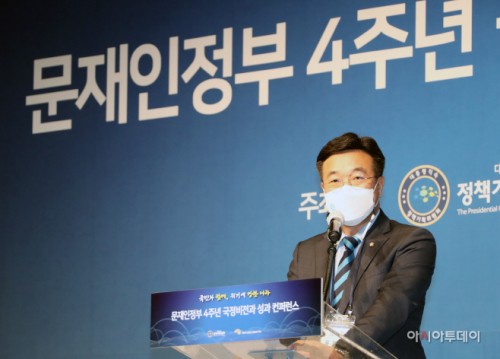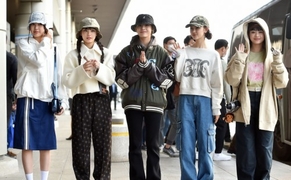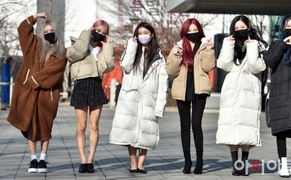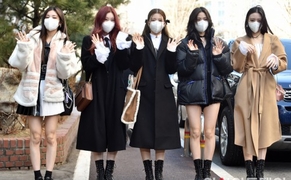 |
| The ruling Democratic Party’s floor leader Yun Ho-jung delivers a congratulatory speech at the conference entitled, “The Moon Jae-in administration’s vision and achievement for the 4th anniversary” held at the Baekbeom KimGu Memorial Hall in Seoul on May 6, 2021./ Source: National Assembly Photojournalists |
AsiaToday reporter Chun Hyun-bin & intern reporter Park Joon-oh
The Moon Jae-in administration marks the fourth anniversary of its inauguration on Sunday. Looking back on its achievements, the administration said, “The Moon Jae-in administration showed remarkable response for three major crises – the North Korean nuclear crisis, the Korean-Japan trade crisis, and the COVID-19 pandemic crisis.”
Unlike the administration’s self-assessment, there are concerns that its major policies might end up miserably after a good start. For instance, its adept initial response to the pandemic is now facing challenges. Experts suggest that a more realistic policy approach is needed for the remaining one-year term. They picked ‘the economy’ as the most urgent sector to focus on.
The Presidential Commission on Policy Planning held a conference entitled, “The Moon Jae-in administration’s vision and achievement for the 4th anniversary,” at the Baekbeom Kim Gu Memorial Hall in Seoul on Thursday. “The last four years have been a consistent journey toward a fair state, a responsible state, and a cooperative state,” the commission said during the conference.
“South Korea is the only country that suppressed the pandemic through democratic quarantine without full shutdown,” said committee chairman Cho Dae-yeop. On the diplomatic and economic sectors, Cho said, “We have overcome the North Korean nuclear crisis in 2017 through PyongChang Olympics, multilateral diplomacy, and peace process on the Korean Peninsula by strengthening national defense capabilities.” Cho said the government overcame the Seoul-Tokyo trade crisis by reorganizing industrial supply network and strengthening competitiveness.
However, the Moon administration failed to meet the public’s expectation in some areas as Cho said, “Every government has merits ad demerits.”
In particular, the Moon administration’s real estate policy that led to skyrocketing housing prices and a land speculation scandal involving employees of a state housing development corporation added fuel to public anger among young people, leading to the ruling party’s crushing defeats in by-elections in Seoul and Busan on April 7.
“The government, which was created on the occasion of the Candlelight Revolution with “eradication of corruption” as its slogan, was creating another kind of corruption on the other side,” said Lee Jong-hoon, a political critic. “The Moon administration failed to achieve its national goals.” He pointed out that it is necessary for the government to rebuild trust to end the term in a stable manner.
Experts said the biggest factor to determine the evaluation of the Moon administration would be whether or not it could overcome the economic crisis brought about by the pandemic for the remaining year. In the economic sector, experts said the income-led growth system based on an increase in the minimum wage needs to be improved.
Regarding the minimum wage system, Yonsei University professor Sung Tae-yoon pointed out that minimum wage has increased “too sharply.” “Since it cannot be reversed, it is necessary to review plans and policies to flexibly alleviate labor rigidity for each industry,” Sung said. He also said the government’s support policy for the vulnerable wasn’t really helpful to them.
Experts also called for deregulation, including relaxation to companies. “I hope the government gives relaxation to companies as well as social regulations in general,” critic Lee said.
#Moon Jae-in administration #Cho Dae-yeop #Presidential Commission on Policy Planning
Copyright by Asiatoday
Most Read
-
1
-
2
-
3
-
4
-
5
-
6
-
7





















